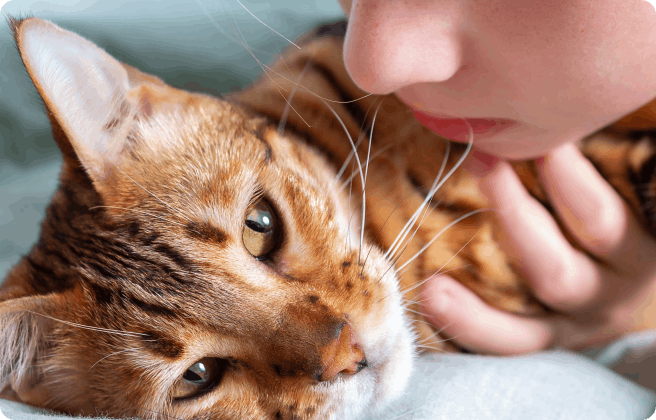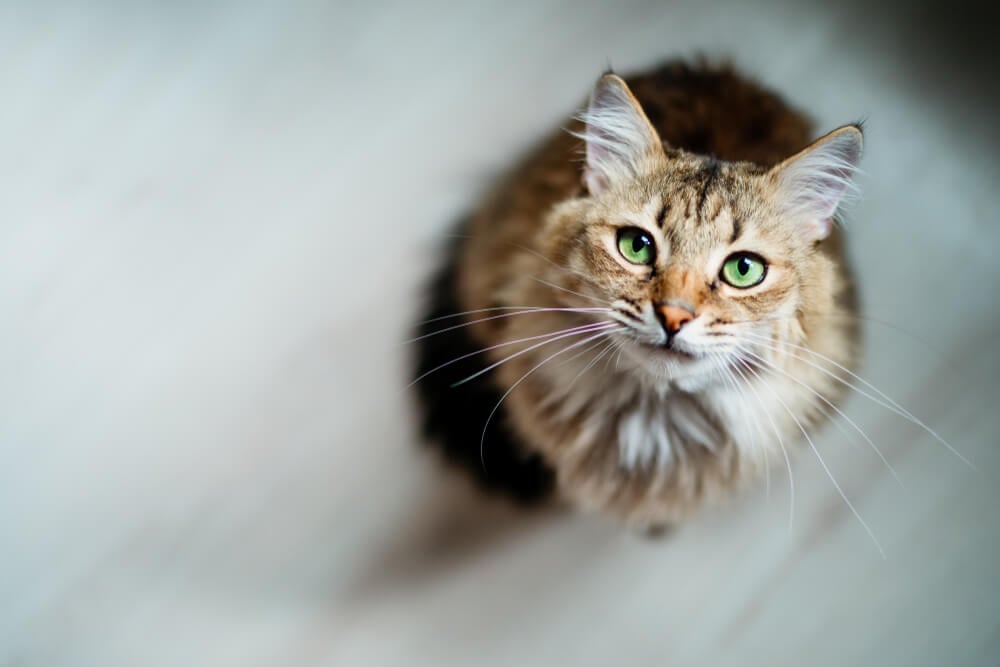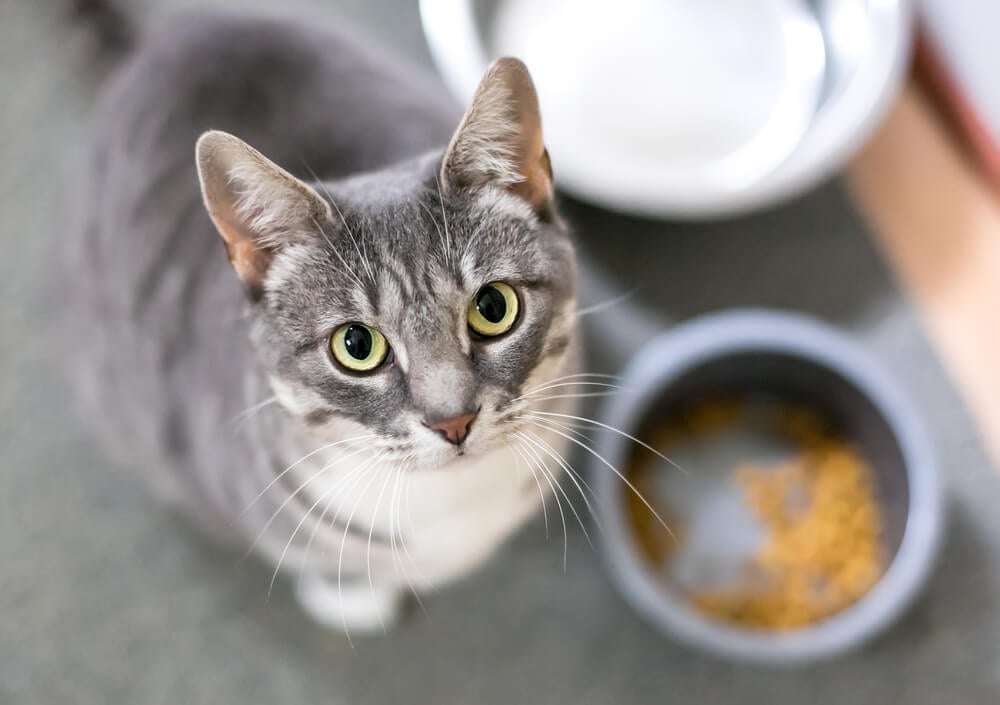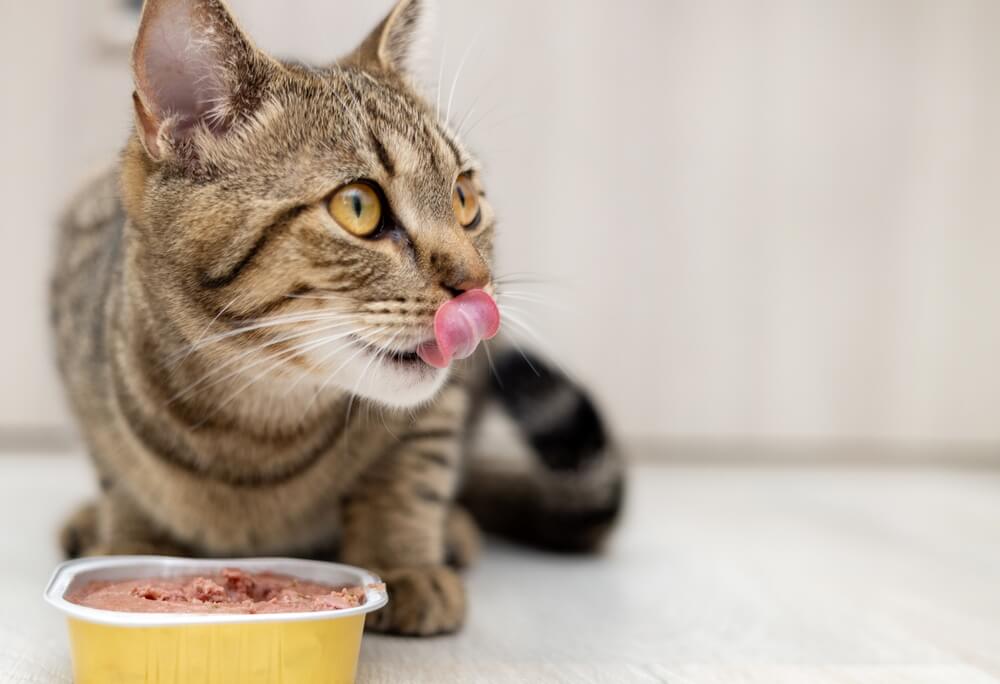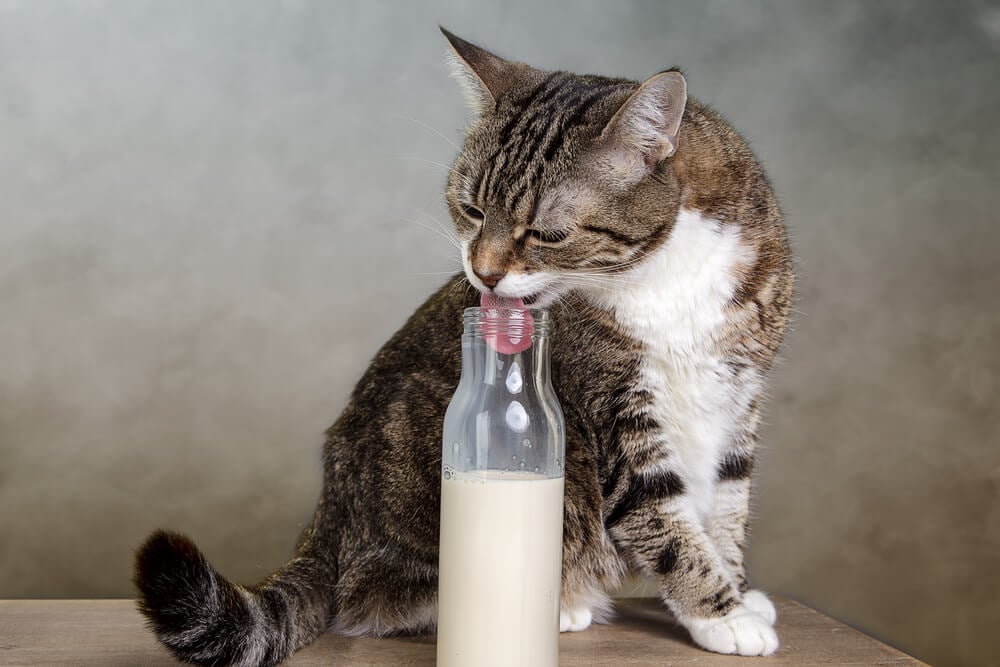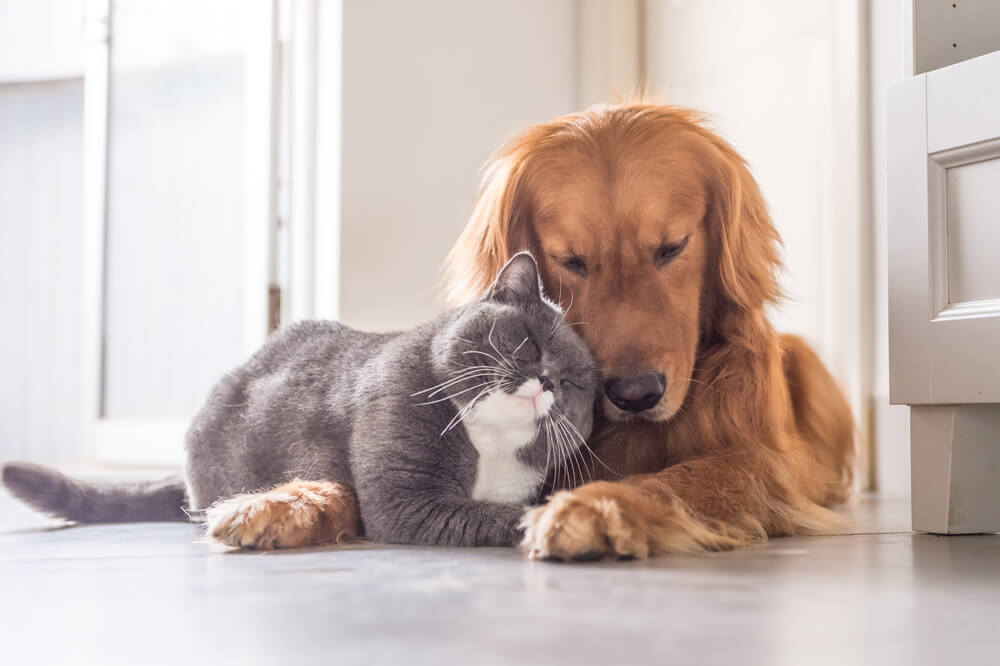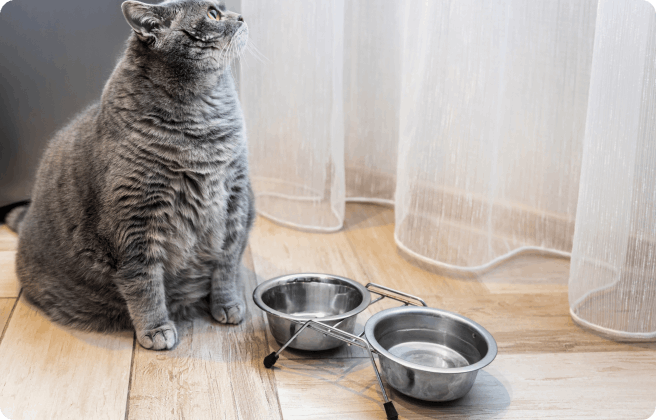
It’s natural to want to spoil your cat with lots of treats and lovely dinners, but those few extra pounds can impact your cat’s quality of life and most importantly, health.
Monitoring your cat’s weight is extremely important, particularly with indoor cats who have less opportunities to explore and exercise.
How can you tell if your cat is overweight?
- You can’t see your cat’s waistline
- You can’t feel their ribs
- Your cat finds jumping difficult
You can see your cat’s waistline
If you are looking directly down at your cat from above while they are standing, you should be able to see a small indent above their hips — their waist. If you can’t see their waist or their sides are bulging, your cat is most likely overweight. Although this can be difficult to tell with long-haired cats.
You can’t feel their ribs
Overweight cats have an increase in fat over their ribs, but you should still be able to feel them. However, if your cat is obese you will struggle to feel your cat’s ribs and backbone. If you can feel your cat’s ribs by lightly running your hand along their chest, your cat is a healthy size.
Your cat finds jumping difficult
Cats are naturally athletic and have bodies which are built to run and jump at speed. If you notice that your cat is reluctant to jump or takes a few attempts to jump, this is a sign they could be overweight.
How can you tell if your cat is underweight?
- You can clearly see and feel your cat’s backbone, ribs, and pelvic bones
- Your cat doesn’t have much fat around its abdomen
- Your cat’s waist is smaller than their neck
What health problems can overweight cats have?
Besides not being able to easily fulfill their natural instincts to run, jump, and chase, overweight cats can also experience a range of medical conditions:
- Diabetes
- Joint pain
- Arthritis
- Urinary tract infections
- Skin problems
- Chronic inflammation
NB: Sudden and unexplained weight gain could be a sign of an underlying health concern. Seek advice from your veterinarian as soon as you can.
What health problems can underweight cats have?
Underweight cats usually have an underlying health concern which has affected their appetite or stopped them from eating altogether. This could be:
- Diabetes
- Dental problems
- Kidney disease
- IBS/IBD
- Skinny old cat syndrome
- Hyperthyroidism
- Stress, anxiety or depression
A bad diet or insufficient food can also cause your cat to lose weight, as cats need to build muscle with a high-protein diet, particularly highly active cats.
How to help your cat lose weight
There are multiple ways to help your cat lose weight and get back to their springy, athletic natures.
The first, perhaps most obvious, route is to adjust your cat’s diet in accordance with their breed, age, and lifestyle. Here are some things you can try:
- Reducing portion sizes
This is a great option if your cat is slightly overweight, as you can keep them on their existing food without too much disruption to their diet. This will also include reducing treats, but consult your vet if you are unsure how much food to feed your cat.
- Book a visit to the veterinarian
Your veterinarian is the best person to speak to in regards to weight concerns for your cat. They can help to diagnose any underlying health issues which may be causing any sudden weight gain, and help you with a diet plan which is customized to your cat’s nutritional needs and lifestyle.
- Try a specialized food for weight loss
There are multiple cat foods on the market which have been formulated to help with weight loss. These recipes will often have a lower carbohydrate level and a higher fiber content to keep your cat fuller and stop them from begging for food.
You should also make sure that your cat has enough space and opportunity to exercise, especially if they are living indoors. Climbing poles, cat wheels, and lots of play time can help to make sure your cat has enough exercise.
How to help your cat put on weight
Weight loss in cats can be caused by underlying health issues such as bad teeth, so you should visit your veterinarian to discover what might be causing your cat to be underweight.
However, weight loss can be caused by a poor diet as well, which your vet can also help with. They may formulate a feeding/diet plan to get your cat’s weight back on track.
We uphold the highest editorial standards when creating the authoritative content pet parents rely on and trust.
Every piece of clinical content on the Cat Food Advisor is reviewed by our certified Veterinary Advisory Board, which consists of licensed veterinarians and medically certified specialists.
Our reviews are completely independent; we are not paid by any pet food company to promote their products favorably. We do not accept money, gifts, samples or other incentives in exchange for special consideration. For more information see our Disclaimer & Disclosure page.




